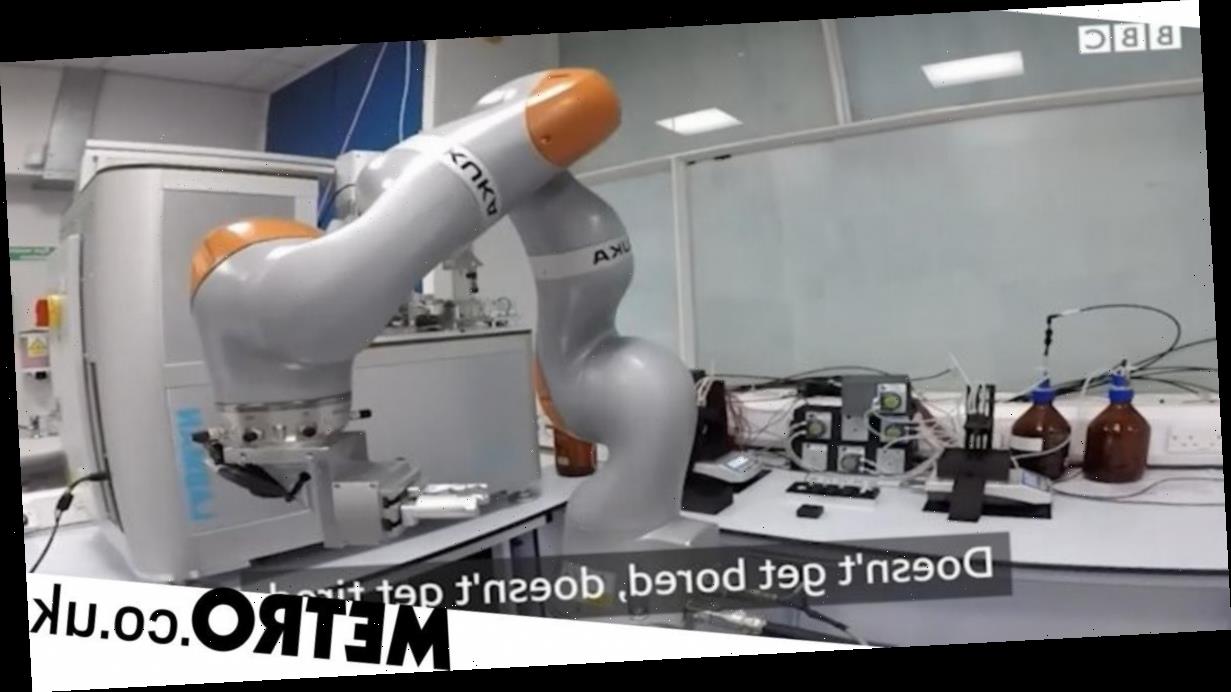Scientists may start to feel a little bit uneasy after it emerged an autonomous robot completed a months-long research project in just three days.
The £100,000 robot, which used to work in a car factory, was reprogrammed by British scientists to work in a chemistry lab. It was given enough intelligence to perform experiments without any additional input.
And the robot went on to perform up to 700 experiments in a single week – far outpacing its human counterparts.
The 400kg robot arm can work around the clock to perform experiments, never gets tired and never needs to stop to eat or sleep. All it requires is a pause to recharge, meaning it puts in a whopping 21.5-hour shift each day.
It uses the same scientific equipment as a human researcher and learns from its results in order to refine the process as it goes. And because it can work in the dark, it can carry out light-sensitive experiments much better than a human researcher.
University of Liverpool PhD student Dr Benjamin Burger, who built and programmed the robot, said the biggest challenge was making it robust.
‘To work autonomously over multiple days, making thousands of delicate manipulations, the failure rate for each task needs to be very low. But once this is done, the robot makes far fewer mistakes than a human operator.’
This robot is capable of moving around the lab and conducting a range of experiments that involve collecting samples and putting them in different types of equipment. It uses laser scanning and touch feedback in order to position itself correctly.
The obvious application for the robot is to help fight the current Covid-19 pandemic. According to Professor Andy Cooper, who put the robot to work in his lab – the Department of Chemistry and Materials Innovation Factory in Liverpool – says enquiries have already been made.
‘We’ve had a lot of interest [in the robot] from labs that are doing Covid research,’ he told BBC News.
‘Covid, climate change – there are lots of problems that really need international co-operation. So our vision is we might have robots like this all across the world connected by a centralised brain which can be anywhere. We haven’t done that yet – this is the first example – but that’s absolutely what we’d like to do.’
Source: Read Full Article

